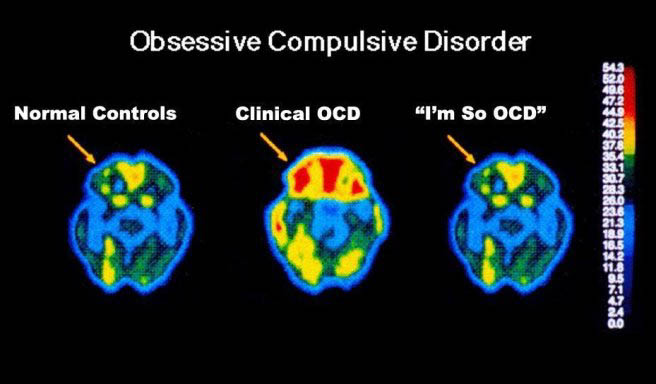Obsessive-Compulsive Disorder (OCD)
Standard treatment options for OCD include SSRI medications and psychotherapy, but even with these treatments many people continue to struggle with persistent symptoms. OCD can severely affect one’s daily life and routines, causing distress or even functional impairment. What would you do if you could improve not just the symptoms of OCD, but the root cause? With TMS, you can regain control of your life and happiness by building a better support system. Call 480-448-2916 to schedule a detailed evaluation.
OCD can present as obsessions and/or compulsions. Obsessions are intrusive or unwanted repetitive and/or persistent thoughts, images, or urges that cause marked distress or anxiety. Obsessions are often odd, irrational, or of a seemingly magical nature. For example, a person may think harm will come if the closet is not arranged in a specific order. Individuals with OCD attempt to ignore, suppress, or neutralize these thoughts, often substituting it with another thought or behavior (compulsion).
Compulsions (or rituals), repetitive behaviors, or mental acts (such as counting or repeating words silently) are behaviors that an individual feels driven to perform in order to reduce the distress triggered by an obsession or to follow rigid self-induced “rules.” While compulsions are often thematically related to an obsession, such as washing rituals to soothe obsessive fears of contamination, they are often not connected in a realistic way to the feared event or are clearly excessive.

TMS Treatments for Obsessive-Compulsive Disorder (OCD)
TMS treatment for OCD is backed by research studies that clearly demonstrate its effectiveness. Since TMS does not require surgery, many people with OCD are curious about this treatment and may be wondering if it is appropriate for them.
TMS for OCD has a unique protocol:
- deep TMS with the D80 deep TMS coil
- 18-minute sessions for 34 sessions
- Covered by some insurance plans (Cigna, some BCBS plans, some Healthnet plans)
Most individuals with OCD manifest both obsessions and compulsions, but both are not necessary for a diagnosis. In the past, primary therapies for OCD included medications and cognitive behavioral therapy (CBT). However, many people didn’t get meaningful results, or only enjoyed minor improvements, with such approaches. Others did not want to continue with the risks associated with medications. This is where TMS comes in.
TMS targets OCD at the source. TMS gently stimulates key areas of the brain known to be affected in people diagnosed with OCD. This can improve the brain’s ability to decrease the symptoms of this disorder.
Benefits of TMS for
Obsessive-Compulsive Disorder (OCD)
Lifetime prevalence of OCD worldwide is estimated at 1.5% for women and 1.0% for men, but the estimated lifetime prevalence in the US is slightly higher, at 2.3%. Females are affected greater than males, but males are more commonly affected than females in childhood.
An increasing number of OCD patients are seeking out TMS treatment, which offers many benefits including being:
- A non-medication alternative treatment
- Non-invasive
- Non-sedative
- FDA-approved for OCD since 2020
Research evaluating how well deep TMS works for treating OCD has found that about 45% of patients have reduced OCD symptoms at one month following their treatment.

Call Our New Patient Coordinator for a Free Consultation.
Our New Patient Coordinator is here to answer all your questions so you can make the most informed decision.
She can explain our treatment options and protocols, fees, insurance, and more. She can also schedule you for a consultation with one of our doctors.
From there, we can determine if you may benefit from MeRT or TMS treatment, and you can decide if you would like to move forward.
We hope you will consider getting more information. You deserve to live a life free from these symptoms — and we want to help you do just that!












